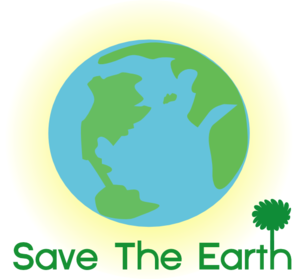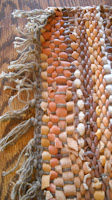In the previous weeks I have primarily learned three key topics: how to advocate, how to compost, and to really think about the products I consume.
Adocacy Project:
In the past few weeks I have been learning what it means to 'advocate' for a right/cause. I have been advocating on using alternative forms of transportation, such as biking, city bus transit, etc. Initially to start out the process I located all of my political representatives -from local to national - and I learned about using THOMAS to look up bills that are proposed to implement throughout the nation. I also answered a number of questions in regards to my topic such as 'Who is affected by the issue?' as well as identifying allies/opponents. This project has really taught me how much effort and time it takes to advocate for a topic. It has also taught me how to advocate in an appropriate manner, it has challenged me to really search for answers and to identify barriers that may be necessary to face. I never realized how much planning and researching went into advocating so I know in the future I will definitely look at both sides of each situation.
Eco-Chic Lifestyle Change:
These past few weeks I have also adapting and incorporating a new behavior into my lifestyle. I chose to begin composting and it has been a great experience! I have never composted prior to this so as the process began I did some research on the topic to figure out what it really means to compost. I learned you can compost a lot of items other than simply food scraps, for example, tea bags. Once I decided I was going to compost I informed my roommates and encouraged them to join me in the process. My roommates have been extremely supportive and have been composting with me. After witnessing how much of an influence this whole process has had on them the thing I feel I have learned the most from this project is knowing that it is okay to share with others about how to promote health for the environment as well as for ourselves. Having the title 'Health Educator,' I'm realizing comes with a lot of responsibilities and reliability. When I inform people of something related to health and they know that I am a health educator they really take what I say to heart and trust that what I am telling them truly must be to improve their lives!
Story of Stuff Video:
Finally, last week our class visited the 'Story of Stuff' webpage and listened to some videos about consumerism and how they items we purchase seem to have little to no effect on those around us, we were informed that more goes on 'behind the scenes' then what we generally notice. One example mentioned the pricing of products we purchase and what they really cost to make. You see the product on the shelf for a great discount, however, the video talked about how in order for the product to be sold at a discount price for you somewhere or someone else is 'paying' more, (ie. someone may have to live in a highly polluted area where the product is manufactured). I remember learning once in my economics course in high school about the term 'TINSTAAFL' (pronounced tin-staff-ul). The word is actually an acronym that stands for 'There Is No Such Thing As A Free Lunch.' Basically, this word defines the message the video was sending and that message is someone/something always has to pay for something. Or you could something cannot come from nothing. There is a chance that someone may receive an item that really didn't cost them anything (ie. a prize a company is giving away), however, what appears to be 'free' is not (the company may have to pay for the item in order to give it as a prize). Since this video I have noticed that I am a lot more cautious about the items I purchase and I have been informing my family and roommates about to make them aware of the situation.
Overall, I will say these topics have taught me to be more cautious about what I am consuming and to consider who/what has been advantaged or disadvantaged in order for me to get this item (regarding the 'Story of Stuff'), and how I may leave a legacy that challenges others and myself to make sure we are doing all we can to preserve and sustain our environment (regarding advocating and change lifestyle behaviors).
These past few weeks I have also adapting and incorporating a new behavior into my lifestyle. I chose to begin composting and it has been a great experience! I have never composted prior to this so as the process began I did some research on the topic to figure out what it really means to compost. I learned you can compost a lot of items other than simply food scraps, for example, tea bags. Once I decided I was going to compost I informed my roommates and encouraged them to join me in the process. My roommates have been extremely supportive and have been composting with me. After witnessing how much of an influence this whole process has had on them the thing I feel I have learned the most from this project is knowing that it is okay to share with others about how to promote health for the environment as well as for ourselves. Having the title 'Health Educator,' I'm realizing comes with a lot of responsibilities and reliability. When I inform people of something related to health and they know that I am a health educator they really take what I say to heart and trust that what I am telling them truly must be to improve their lives!
Story of Stuff Video:
Finally, last week our class visited the 'Story of Stuff' webpage and listened to some videos about consumerism and how they items we purchase seem to have little to no effect on those around us, we were informed that more goes on 'behind the scenes' then what we generally notice. One example mentioned the pricing of products we purchase and what they really cost to make. You see the product on the shelf for a great discount, however, the video talked about how in order for the product to be sold at a discount price for you somewhere or someone else is 'paying' more, (ie. someone may have to live in a highly polluted area where the product is manufactured). I remember learning once in my economics course in high school about the term 'TINSTAAFL' (pronounced tin-staff-ul). The word is actually an acronym that stands for 'There Is No Such Thing As A Free Lunch.' Basically, this word defines the message the video was sending and that message is someone/something always has to pay for something. Or you could something cannot come from nothing. There is a chance that someone may receive an item that really didn't cost them anything (ie. a prize a company is giving away), however, what appears to be 'free' is not (the company may have to pay for the item in order to give it as a prize). Since this video I have noticed that I am a lot more cautious about the items I purchase and I have been informing my family and roommates about to make them aware of the situation.
Overall, I will say these topics have taught me to be more cautious about what I am consuming and to consider who/what has been advantaged or disadvantaged in order for me to get this item (regarding the 'Story of Stuff'), and how I may leave a legacy that challenges others and myself to make sure we are doing all we can to preserve and sustain our environment (regarding advocating and change lifestyle behaviors).



































